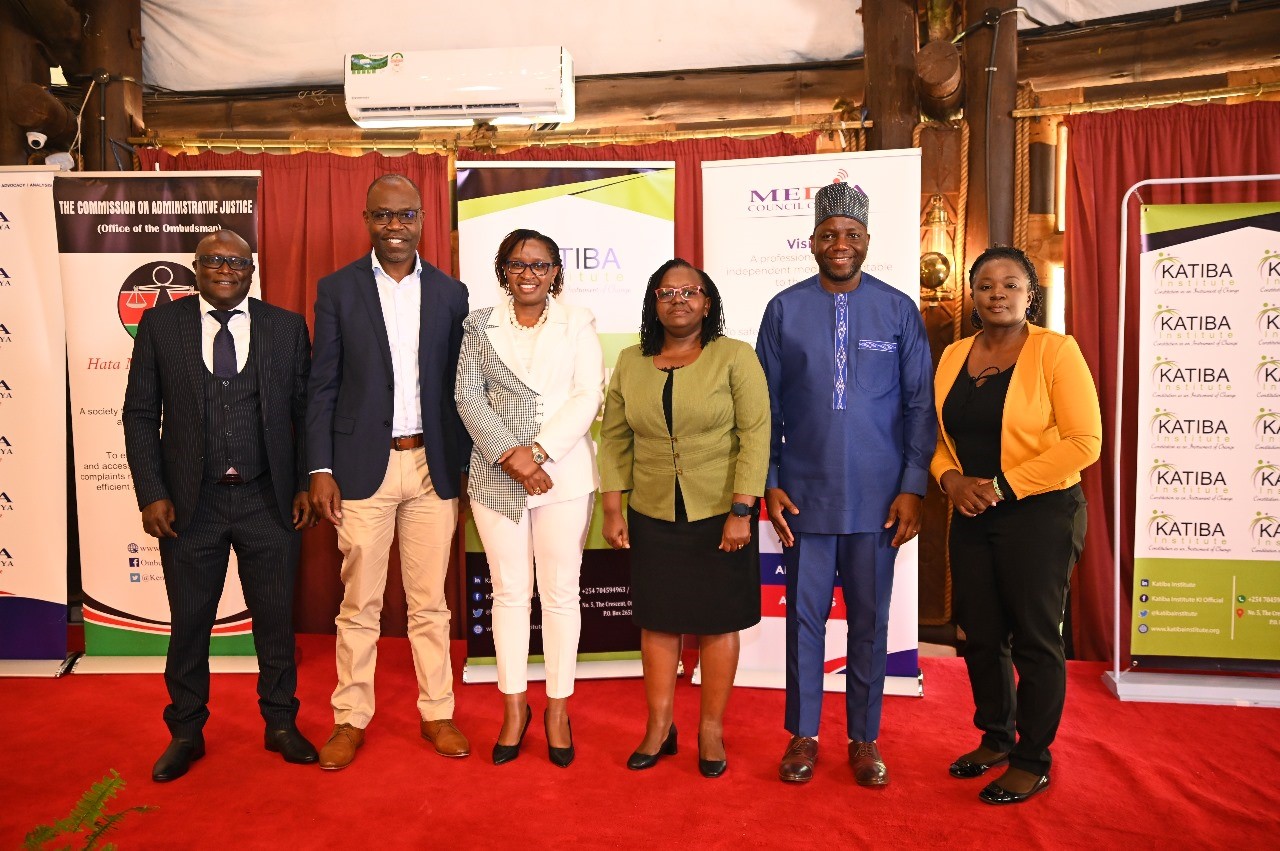
The Media Council of Kenya (MCK) has underscored that the right to information is only achievable through access to information, a fundamental pillar for empowering the media and enhancing public participation.
MCK Director for Corporate Services Hillary Korir has said that journalists will be able to fulfil their watchdog role once they are granted access to information.
He affirmed the Council’s commitment to partnering with stakeholders to empower the journalists to carry out their work effectively while referring to cases brought before the Council’s Complaints Commission.
“The Council has received complaints regarding denial of access to information. It is our hope that this will serve as a platform for ideas to enhance access to information”, he said during the International Day on Universal Access to Information (IDUAI) celebrations in Nairobi.
Commission on Administrative Justice (Office of the Ombudsman) CEO Mercy Wambua urged public institutions to embrace innovative approaches, emerging technologies and leverage on community networks to enhance information sharing for effective citizen participation in governance and development.
“Access to Information Act mandates that public entities maintain records that are accurate and usable to support the right of access to information”, she said.
Ms Wambua noted the progress made by the country in realising access to information in the public sector by providing clarity on access to information decisions and developing draft access to information policy that seeks to drive desired change.
“The government has been keen on strengthening access to information through appointing information access officers who take the lead of awareness creation at institution level, setting up information committees and record management policies”, she said.
Katiba Institute's acting Executive Director Christine Kuria called for the enhancement of access to information among the Indigenous and persons living with disabilities.
“Effective implementation of access to information policies and empowering citizens to utilise tools to demand accountability from the government is a system of political goodwill”, she stated.
She reiterated the need for public participation saying that it will provide a platform for public participation to ensure proactive disclosure of information.
National Democratic Institute Resident Country Director Dennis Omondi highlighted the linkage between access to information and public participation and how it affects information demand and supply.
“Public participation and access to information must be looked at with a two-prong approach as they both affect the livelihood of the public. Transparency on government operations is essential for the public to make informed decisions”, he said.
He further urged public entities to commit to ensuring that access to information translates to effective public participation where every Kenyan can participate in shaping the society.
UNESCO Programme Specialist for Social and Human Sciences Hugue Ngandeu delved on the importance of proactive disclosure for a transparent and inclusive governance.
“Ensuring access to information is paramount and addressing existing challenges may require the establishment of an independent oversight commission”, he said.
Kenya Editors’ Guild CEO Rosalia Omungo appealed to journalists to verify information before conveying to the public terming it as a key tenet in journalistic professionalism.
Kenya Union of Journalists (KUJ) Secretary General Eric Oduor emphasised the importance of sharing information with the public. He said having an unlimited flow of information helps avoid misinformation, which is a threat to journalism.